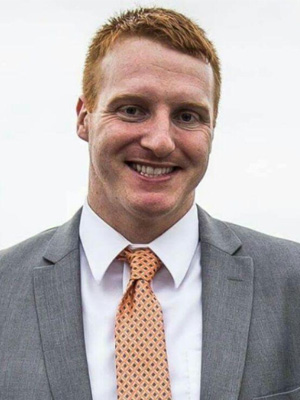-
 State of the Art EquipmentA new age of dentistry
State of the Art EquipmentA new age of dentistry -
 Pediatric AnesthesiaExpertise with a gentle approach
Pediatric AnesthesiaExpertise with a gentle approach -
 Because everyone in your familydeserves a healthy smile
Because everyone in your familydeserves a healthy smile -
 Continuous monitoringthroughout the sedation process
Continuous monitoringthroughout the sedation process
About Us
Who are we? What we do?
Anesthesia Associates of Central PA is dedicated to providing safe, comfortable, and affordable anesthesia services to patients in the dental office.
We strive to expand patient access to care, enabling their comprehensive dental treatment to be completed in the comfort of their dental provider's office. Utilizing state of the art techniques and equipment to provide an efficient and pleasurable experience, our doctors work closely with your dentist to determine what is best for you or your child. The doctors and our staff recognize each patient requires unique considerations and tailors the anesthetic treatment plan to each individual situation.
Frequently Asked Questions
Sedation dentistry is the use of medications (oral, intramuscular, and intravenous) to calm and relax a patient prior to and during the dental procedure. This treatment option allows the dentist to complete the treatment plan in one appointment in a safe and comfortable environment.
Most times, dental procedures may be completed through the use of local anesthesia to “numb” the area of the mouth that is to be worked on. For some patients, however, dentists may choose to supplement the local anesthesia with oral medication or nitrous oxide (laughing gas). Although this treatment modality is sometimes adequate for minor procedures, some patients require a different anesthesia technique termed deep sedation or general anesthesia. Anesthesthetic medications will allow you or your child to “sleep” through the procedure in a safe, controlled, monitored setting.
This technique utilizes a deeper level of sedation through a combination of intramuscular and intravenous medications to allow the treatment to be completed in a safe and comfortable way.
Oral Sedation is the use of oral medications, sometimes in conjunction with nitrous oxide, as a management technique for children or adults with mild fear and anxiety. This technique provides anxiolysis (anxiety reduction) and occasionally amnesia (lack of awareness) during the appointment. Oral sedation typically is not recommended for the severely phobic patient or very young child requiring more than a very minor procedure.
Moderate sedation (previously conscious sedation) is a medication induced level of unconsciousness during which patients respond purposefully to verbal or tactile stimulation. During this depth of anesthesia, no intervention is required to maintain a patent airway (no breathing assistance required).
Deep sedation is a medication induced depression of consciousness during which patients respond purposefully to painful stimulation. Some patients require deep sedation to complete their dental care.
General anesthesia is a medication induced state of anesthesia that allows the patient to be unconscious (asleep) for the duration of their dental treatment. This level of anesthesia is recommended for very young children, the very resistant child, special needs patients, and the dental phobic patient.
The pediatric dentist will meet with the child on an initial visit and determine based on the child’s behavior and course of the appointment which level of sedation is most appropriate. Your pediatric dentist and Dr. Kevin Dincher will be in close communication and determine which type of sedation is best suited for your child.
When conducting sedation/sleep dentistry in the office setting, safety is of the utmost importance. State of the art monitoring equipment, similar to what is used in the operating room will be utilized. The patient’s heart rate, rhythm, blood pressure, breathing patterns, oxygen levels, and temperature will be closely monitored for the duration of the appointment. Dr. Dincher will be with the patient for the duration of the appointment in the treatment room and that will be the ONLY patient being treated at that time under his anesthetic care.
Meet the Doctor
Kevin Dincher, DMD
Dr. Kevin Dincher is a native of Williamsport, Pennsylvania. He received his bachelor’s degree from the Pennsylvania State University with a major in Biology. After graduating Penn State he earned his Doctorate of Dental Medicine from the University of Pittsburgh School of Dental Medicine. It is at the University of Pittsburgh where Dr. Dincher was introduced to anesthesia. He became dedicated to expanding patient access to care by providing anesthesia services and pursuing his dream. Dr. Dincher completed a post-doctoral residency program at Stony Brook University Hospital in NY, a trauma center featuring over 24 operating rooms, receiving extensive training in medical anesthesiology.
During residency training Dr. Dincher received specialty training treating pediatric, special needs, and phobic patients. He administered anesthesia for patients undergoing dental, maxillofacial, and ENT procedures. This training consisted of hospital-based as well as private office-based cases.
After matriculation through residency, Dr. Dincher moved to State College, Pennsylvania and established an office-based anesthesia practice. This practice focuses on providing all levels of anesthesia to pediatric, special needs, and phobic patients across Pennsylvania.
Dr. Dincher is a member of the American Society of Dental Anesthesia, the Society for Pediatric Anesthesia, the American Dental Society of Anesthesiology, and the Pennsylvania Dental Association. Dr. Dincher is now board certified through the American Dental Board of Anesthesiology.
Outside of work Dr. Dincher enjoys spending time with his family and friends, hunting/fishing, and going to sporting events.


Professional
In the 21st century, more and more dental offices are offering sedation services to their patients. Whether it is an increasing scope of the practice, procedural complexity, or patient challenges, the utilization of anesthesia services in the dental suite has become more prevalent. Although most procedures in the office can be performed under local anesthesia, several groups of patients including young children, patients with special needs, those undergoing complex or lengthy treatment, or simply patients with generalized phobias of needles/dentistry could benefit from sedation in the office.
With the advent of medical technology, pharmaceutical advancements, and skilled provider availability, advanced anesthesia techniques can bring hospital-grade anesthesia to the ambulatory setting, including the dental office. Specially trained dentist anesthesiologists are uniquely trained to provide these services in your office. Dr. Dincher provides his own staff, equipment, and medications to offer all levels of sedation tailored to the individual patient and procedure -- from moderate to deep/general anesthesia.
If you would like to discuss sedation services with our team, please feel free to call (814) 862-9603.
Finance Policy
To better serve our patients, it is important that all parties understand fully the financial arrangements agreed upon in advance. Anesthesia Associates of Central PA does not directly participate with your dental or medical insurance carrier. It is important for you to understand that reimbursement associated with anesthesia services is not guaranteed and payment in full is required on the day of treatment.
We are not affiliated with your dentist, surgeon, or insurance carrier. Please contact your insurance company representatives to discuss your specific benefits package. Our office will assist you in being reimbursed by providing billing codes, forms, etc. Due to the significant amount of time and effort involved in planning, scheduling, obtaining medical consultations, and the urgency of care required by some of our patients, we require an advanced deposit payable at the time your appointment is confirmed. This deposit is refundable until 48 hours prior the scheduled date of treatment. The deposit becomes non-refundable if the appointment is cancelled within 48 hours or if the specific preoperative instructions from Dr. Dincher are not followed.
Our billing and fees are based on the duration of you or your child’s treatment. Our office will work closely with your dentist to provide an estimate for the anesthesia services involved. For more information regarding specific fees, please contact us directly.
Forms
Contact Us
Get In Touch
Find Us
- Anesthesia Associates of Central PA
1019 Ghaner Road, Suite 100.
Port Matilda PA 16870 - Email: kevin.dincher@aaofcentralpa.com
- Phone: (814) 862-9603
- Fax: (814) 826-2289
